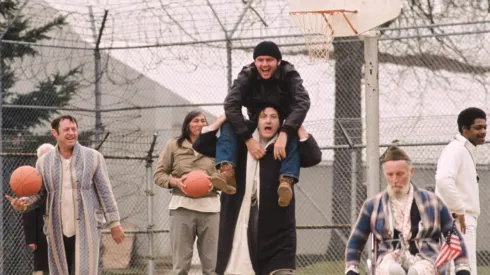Mental health has often been misunderstood or misrepresented in popular media, but film offers a unique opportunity to portray it with nuance and empathy. When done with care and accuracy, these stories help to reduce stigma and build awareness by inviting audiences to step into the experiences of those living with mental health challenges.
As society grows more open to discussing emotional well-being, films that tackle mental health continue to play a vital role in shaping public perception. They reflect the inner battles many face and show that these struggles are part of the human condition, not signs of weakness.
Silver Linings Playbook (2012)
David O. Russell’s film explores the complexities of bipolar disorder and grief through the character of Pat, a man trying to rebuild his life after a psychiatric hospitalization. The story doesn’t shy away from the messiness of recovery and interpersonal conflict but balances its serious themes with warmth and humor. Jennifer Lawrence and Bradley Cooper deliver nuanced portrayals that helped mainstream important conversations about mood disorders.
A Beautiful Mind (2001)
Based on the life of Nobel Prize–winning mathematician John Nash, A Beautiful Mind depicts his journey living with schizophrenia. The film avoids turning Nash’s condition into a spectacle and instead focuses on the personal toll and triumph of managing delusions while maintaining professional excellence. It brings awareness to how mental illness can intersect with genius and relationships, anchored by Russell Crowe’s deeply human performance.
The Perks of Being a Wallflower (2012)
This coming-of-age drama delves into the emotional isolation and trauma experienced by a high school freshman named Charlie. Through friendships, therapy, and self-discovery, the film addresses depression, PTSD, and the importance of being heard. Its tender approach, framed by Stephen Chbosky’s own novel, resonates particularly with younger audiences grappling with similar issues.
One Flew Over the Cuckoo’s Nest (1975)
A landmark in mental health cinema, One Flew Over the Cuckoo’s Nest critiques the institutional systems of psychiatric care in mid-20th century America. Based on Ken Kesey’s 1962 novel, the film follows Randle P. McMurphy, a rebellious inmate who fakes insanity to serve his sentence in a mental institution, only to discover the oppressive realities within. While it has faced criticism for reinforcing outdated stereotypes (particularly around electroshock therapy and psychiatric authority) it undeniably captures the dehumanization and loss of autonomy experienced by many institutionalized patients at the time.
The Father (2020)
Anthony Hopkins’ Oscar-winning performance in The Father offers a powerful window into dementia from the perspective of the person experiencing it. Rather than depicting memory loss through exposition or external observation, the film immerses the viewer in the confusion and disorientation of the protagonist. It’s a groundbreaking narrative structure that turns a clinical diagnosis into an emotional, lived experience.
Good Will Hunting (1997)
This Oscar-winning drama explores trauma, repressed genius, and the transformative power of therapy. Matt Damon’s Will is a self-sabotaging math prodigy who masks his vulnerability with arrogance and defiance. Robin Williams’ performance as the compassionate therapist Sean anchors the film’s emotional depth, portraying therapy not as a cure-all but as a space where healing begins through trust and acceptance.
You Were Never Really Here (2017)
This psychological thriller starring Joaquin Phoenix dives into the fragmented mind of a war veteran dealing with PTSD, depression, and violent trauma. Director Lynne Ramsay presents the character’s mental state through stark visuals and disorienting narrative techniques. It’s a haunting, minimalist portrayal of a man numbed by suffering, offering a raw perspective on invisible wounds and emotional detachment.
Black Swan (2010)
Darren Aronofsky’s psychological thriller offers a gripping and unsettling exploration of obsession, perfectionism, and psychosis. Natalie Portman’s portrayal of a ballet dancer descending into a fractured mental state captures the intense pressure and isolation that can accompany artistic ambition. The film’s surreal visuals and haunting score deepen the sense of anxiety and fragmentation, providing a stark look at how mental health can unravel under relentless stress.
To the Bone (2017)
To the Bone offers an unflinching look at anorexia nervosa through the story of a young woman navigating treatment and self-acceptance. The film handles the complexities of eating disorders with a compassionate eye, highlighting the physical and psychological battles involved. Lily Collins’ raw performance helps destigmatize a condition often misunderstood or glamorized in media.
Infinitely Polar Bear (2014)
Based on director Maya Forbes’ own childhood, Infinitely Polar Bear tells the story of a father living with bipolar disorder who attempts to care for his two daughters while their mother pursues an education. Mark Ruffalo delivers a warm yet raw performance that captures both the charisma and volatility of manic-depressive episodes. The film strikes a delicate balance between humor and heartache, offering an intimate and respectful portrait of how mental illness affects not just the individual, but an entire family trying to love and survive together
